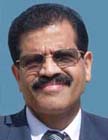|
| |
Addiction is a brain disease
Main
Article page |
Beauty articles
|
Health page |
Computers|
Diseases |
Education |
Entertainment |
Family
Business |Fitness|
Fruits and Vegetables
|
Jobs |
General |
Personality|
Technology
|
Tourism |
Useful Tips
General Knowledge |
Biography Page|
Heroes & Incredible peoples
|
Inventions
Health Page|
Diseases and Remedies |
Articles|
List of diseases
WASHINGTON: Addiction is not
just a simple behaviour problem involving alcohol, drugs, gambling or sex -
it is a chronic brain disorder, scientists have now defined.
The American Society of Addiction Medicine has released this new definition
of addiction after a four-year process involving more than 80 experts.
"At its core, addiction isn't just a social problem or a moral problem or a
criminal problem. It's a brain problem whose behaviours manifest in all
these other areas," Dr Michael Miller, former president of ASAM who oversaw
the development of the new definition, said.
"Many behaviours driven by addiction are real problems and sometimes
criminal acts. But the disease is about brains, not drugs. It is about
underlying neurology, not outward actions, " Dr Miller was quoted as saying
by LiveScience.
The new definition also describes addiction as a primary disease, meaning
that it's not the result of other causes, such as emotional or psychiatric
problems.
And like cardiovascular disease and diabetes, addiction is recognized as a
chronic disease; so it must be treated, managed and monitored over a
person's lifetime, the researchers said. Two decades of advancements in
neuroscience convinced ASAM officials that addiction should be redefined by
what's going on in the brain.
Research has shown that addiction affects the brain's reward circuitry, such
that memories of previous experiences with food, sex, alcohol and other
drugs trigger cravings and more addictive behaviours, the researcher said.
Brain circuitry that governs impulse control and judgment is also altered in
the brains of addicts, resulting in the nonsensical pursuit of "rewards,"
such as alcohol and other drugs, they added.
A long-standing debate has roiled over whether addicts have a choice over
their behaviours, said Dr Raju Hajela, former president of the Canadian
Society of Addiction Medicine and chair of the ASAM committee on addiction's
new definition.
"The disease creates distortions in thinking, feelings and perceptions,
which drive people to behave in ways that are not understandable to others
around them," Hajela said in a statement.
"Simply put, addiction is not a choice. Addictive behaviours are a
manifestation of the disease, not a cause."
Even so, Hajela pointed out, choice does play a role in getting help.
"Because there is no pill which alone can cure addiction, choosing recovery
over unhealthy behaviours is necessary," Hajela said.
This "choosing recovery" is akin to people with heart disease who may not
choose the underlying genetic causes of their heart problems but do need to
choose to eat healthier or begin exercising, in addition to medical or
surgical interventions, the researchers said.
"So, we have to stop moralising, blaming, controlling or smirking at the
person with the disease of addiction, and start creating opportunities for
individuals and families to get help and providing assistance in choosing
proper treatment," Miller said.
( Courtesy: Times of India
http://timesofindia.indiatimes.com
)
More articles:
| |
|


